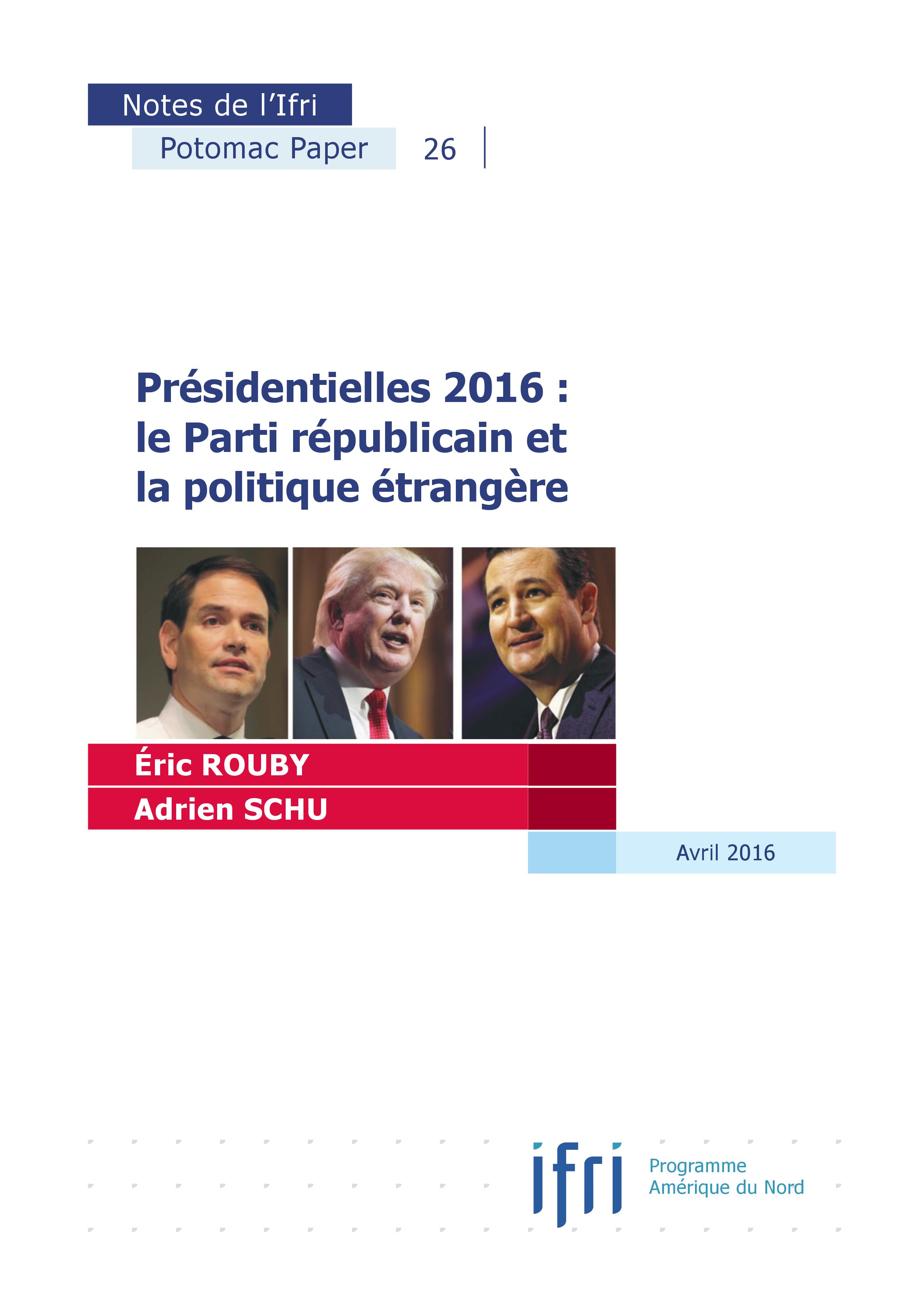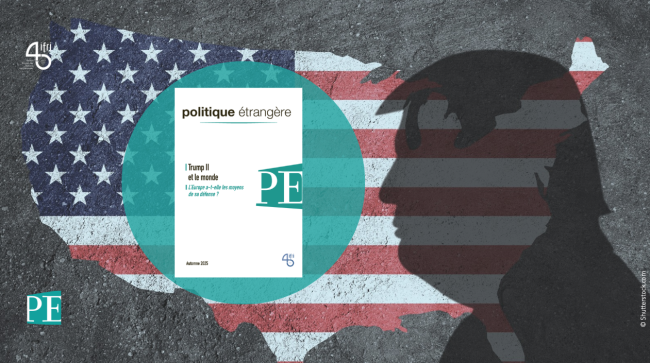Présidentielles 2016: le Parti républicain et la politique étrangère

Three Republican presidential candidates have proposed a foreign policy agenda worthy of examination. Marco Rubio (who withdrew from the race on 15 March 2016) and Ted Cruz present well-defined political projects pertaining to different traditions of American foreign policy theory. Donald Trump’s approach is less clear-cut but also less traditional, between isolationism and profitability.
Marco Rubio’s « democratic realism » is built around strong support to American power and values (market-oriented economy, human rights and democracy). The United States must defend democracy under all circumstances, although U.S. military interventions should be limited to situations of popular upheaval and threats to U.S. national security. Rubio therefore approves the U.S. military interventions in the Middle East during and after the Arab Springs. Regarding Syria, he is in favor of fighting against both President Assad and the Islamic State.
For Ted Cruz and his « Jacksonian realism », the country’s primary objective is to guarantee national security rather than promoting moral values. Exporting democracy does not work. Therefore, the United States should support authoritarian regimes if they act as a bulwark against terrorism and regional instability. Cruz takes the example of Egypt and Libya, where the departure of the dictators impacted US security negatively. Accordingly, he recommends that Assad should stay in power.
Foreign policy is not a central issue for Donald Trump, who did not unveil his team of advisers on this matter until the end of March. His proposals alternate between isolationism and military adventurism and often lack consistency. Nevertheless, he has stated repeatedly that the U.S. should not necessarily act as a world leader, and has no moral obligations vis-à-vis the rest of the world. According to the New York businessman, the United States should never lose money in its commitments abroad. The wars in Iraq and Afghanistan were very costly and did not bring any concrete results: they were a mistake. Allied countries benefiting from U.S. military presence, such as Japan, Germany and South Korea, should bear the cost of these deployments.
This content is available in French : "Présidentielles 2016 : le Parti républicain et la politique étrangère".
Related centers and programs
Discover our other research centers and programsFind out more
Discover all our analysesBrazil One Year Away from the October 2026 General Elections
Brazil’s general elections will be held on October 4, 2026, to elect the president, vice-president, members of the National Congress, governors, deputy governors and state legislative assemblies. For the presidential and gubernatorial elections, a second round will be held on October 25 if no candidate obtains a majority of the votes in the first round.
Trump II: The Clash of Ideologies
The second Trump administration brings together a number of very different, even opposing, ideologies: far-right populism, the reactionary Christian right, paleolibertarianism, and technolibertarianism. The most visible measures taken since Donald Trump's return to the White House have been populist in nature, with the president's authority strengthened, checks and balances weakened, a form of identity politics embraced, and economic nationalism implemented.
Water in Mexico: an Emergency that Will Wait
Access to water is already and will become increasingly problematic for Mexican economic actors due to the progressive scarcity of the resource resulting from climate change, a geographical distribution that does not coincide with that of the population or economic activity, and management that has so far been far too lax.
Donald Trump v. the States: the Case of New York
While the disruptive policies of the second Trump administration are being implemented at the federal level and on the international stage, they are also being felt in the federal states and major cities across the country. In the spring of 2025, several cases involving the state and city of New York demonstrate that the president’s attacks on environmental protection, the separation of powers, freedom of speech, etc., are also being carried out at the local level.












